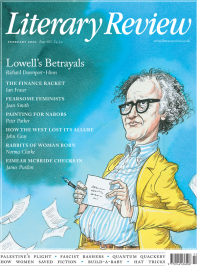Catherine McIlwaine
Tolkien at the Crossroads
The archives of Oxford University, held at the Bodleian Library, date from the 13th century and are a treasure trove for historians. From this hoard I recently unearthed a document which has escaped attention for a hundred years and which sheds new light on the early career choices of J R R Tolkien.
A small index card from the Oxford University careers service, created in 1918, provides new information about a critical period in Tolkien’s life as he took decisions that would affect not just his professional career but his literary one as well. The careers service was founded in 1892 to help recent Oxford graduates find employment. An index card was created for each young man (women could not use the service until 1932), recording the type of employment sought and the advice offered. The cards contain candid personal comments and provide a remarkable snapshot of each eager graduate.
In December 1918, one month after the armistice was signed, Tolkien returned to Oxford. He was a lieutenant in the Lancashire Fusiliers; although not yet officially demobbed, he had been released for a partial return to civilian life. The war years had not been kind to him: he was a

Sign Up to our newsletter
Receive free articles, highlights from the archive, news, details of prizes, and much more.@Lit_Review
Follow Literary Review on Twitter
Twitter Feed
In 1524, hundreds of thousands of peasants across Germany took up arms against their social superiors.
Peter Marshall investigates the causes and consequences of the German Peasants’ War, the largest uprising in Europe before the French Revolution.
Peter Marshall - Down with the Ox Tax!
Peter Marshall: Down with the Ox Tax! - Summer of Fire and Blood: The German Peasants’ War by Lyndal Roper
literaryreview.co.uk
The Soviet double agent Oleg Gordievsky, who died yesterday, reviewed many books on Russia & spying for our pages. As he lived under threat of assassination, books had to be sent to him under ever-changing pseudonyms. Here are a selection of his pieces:
Literary Review - For People Who Devour Books
Book reviews by Oleg Gordievsky
literaryreview.co.uk
The Soviet Union might seem the last place that the art duo Gilbert & George would achieve success. Yet as the communist regime collapsed, that’s precisely what happened.
@StephenSmithWDS wonders how two East End gadflies infiltrated the Eastern Bloc.
Stephen Smith - From Russia with Lucre
Stephen Smith: From Russia with Lucre - Gilbert & George and the Communists by James Birch
literaryreview.co.uk